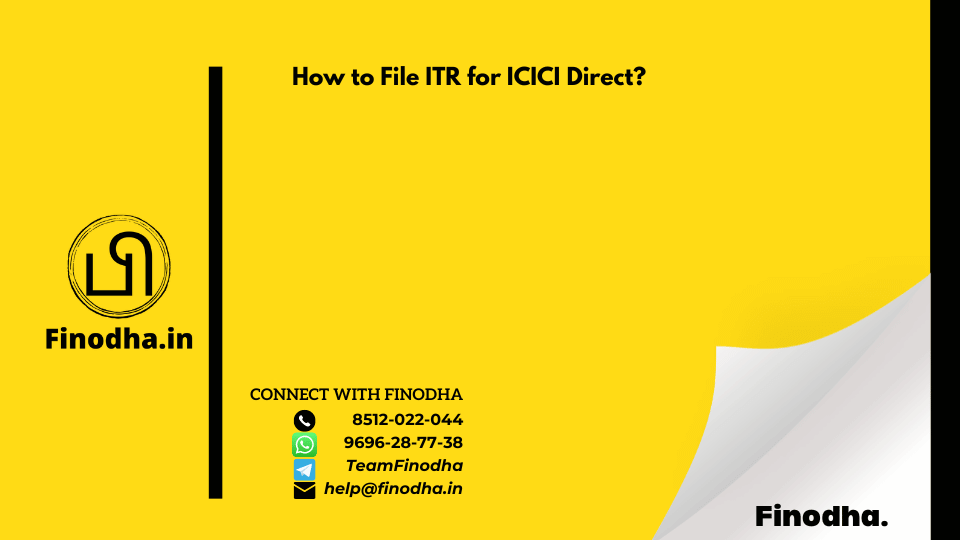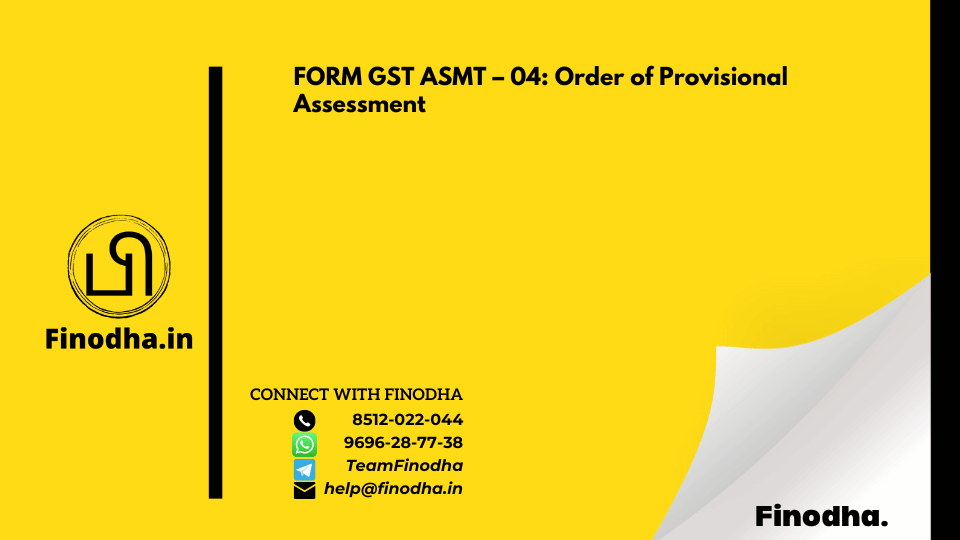Important Keyword: ICICI Direct, Trading Income.
Table of Contents
How to File ITR for ICICI Direct?
An ICICI Direct trader needs to file an Income Tax Return (ITR) based on the income earned from trading in equity, mutual funds, or derivatives. ICICI Direct provides a Tax P&L Report, which summarizes all trading transactions made during the financial year. This report helps traders determine which ITR form to file and whether a tax audit is necessary. If you are an ICICI Direct trader looking to file your ITR, you can follow the detailed process outlined below.
Tax P&L Statement Tabs Explained

ICICI Direct does not provide a consolidated Tax P&L Statement. Therefore, you will need to manually download the tax statements for different segments. The key information included in these statements is explained below:
- Trade Date: The date on which the trade was executed.
- Exchange: This indicates any gain or loss caused by changes in the exchange rate. For example, if an invoice is entered at one rate and paid at another, this will result in an exchange gain or loss.
- Credit/Debit:
- Debit: An accounting entry that increases an asset or expense account or decreases a liability or equity account. It is recorded on the left side of an accounting entry.
- Credit: An accounting entry that increases a liability or equity account or decreases an asset or expense account. It is recorded on the right side of an accounting entry.
Which ITR Form is Applicable for ICICI Direct?
Filing the Income Tax Return (ITR) is an annual process for ICICI Direct traders. Depending on your income situation, you will need to file the appropriate ITR form. When filing your ITR, you should:
- Report Incomes: Declare all your sources of income.
- Calculate and Pay Taxes: Compute the taxes you owe and make the payment.
- Claim TDS Credits: Claim credit for the Tax Deducted at Source (TDS) on your income.
- Request Refunds: If you have overpaid taxes, request a refund.
Taxpayers who earn income from trading activities must file either ITR-2 or ITR-3, depending on the nature of their trading income:
- Capital Gains Income: If your income from trading is classified under capital gains (e.g., gains from the sale of stocks, mutual funds, etc.), you should file ITR-2.
- Business Income: If your income from trading is categorized as business income (e.g., if you are engaged in frequent and substantial trading activity), you should file ITR-3.
Due Date for Filing ITR for ICICI Direct
Income Tax Return(ITR) filing is done after the completion of a financial year. Due dates for ITR filing are as per section 139 of the income tax act. Due dates for different category of taxpayers are as follows:
| Category | Due Date |
| Individuals to whom audit is not applicable | 31st July of the Assessment Year |
| Companies | 30th September of the Assessment Year |
| Individuals to whom audit is applicable | 30th September of the Assessment Year |
| Individuals/ HUF who are partners in a firm and firm’s accounts are subject to audit | 30th September of the Assessment Year |
The above due dates can be extended by the IT Department via order.
Tax Audit Applicability for ITR filing of ICICI Direct
Stock traders engage in trading shares, securities, commodities, and currencies using online platforms. Income generated from trading activities such as Equity Intraday, Equity Futures & Options (F&O), Commodity Trading, and Currency Trading is classified as Business Income. It is crucial to determine whether a Tax Audit is applicable based on the provisions of the Income Tax Act.
According to Section 44AB of the Income Tax Act, the turnover limit for requiring a Tax Audit is Rs. 1 crore. However, as per the amendments introduced in Budget 2020, this turnover limit has been increased to Rs. 5 crore under the following conditions:
- Cash Payments: Cash payments should not exceed 5% of the total payments made during the financial year.
- Cash Receipts: Cash receipts should not exceed 5% of the total receipts received during the financial year.
If both these conditions are satisfied—meaning cash payments are within 5% of total payments and cash receipts are within 5% of total receipts—then traders can benefit from the increased turnover limit of Rs. 5 crore before requiring a Tax Audit.
Calculation of Trading Turnover
When a person earns income from trading in shares and securities, it should typically be reported as income from business and profession, not as capital gains income. To determine whether a Tax Audit is applicable as per the Income Tax Act, it is necessary to calculate the Trading Turnover specifically for income categorized as business income.
Read More: Download Tax Profit and Loss report from Axis Direct
Web Stories: Download Tax Profit and Loss report from Axis Direct
Official Income Tax Return filing website: https://incometaxindia.gov.in/





0 Comments